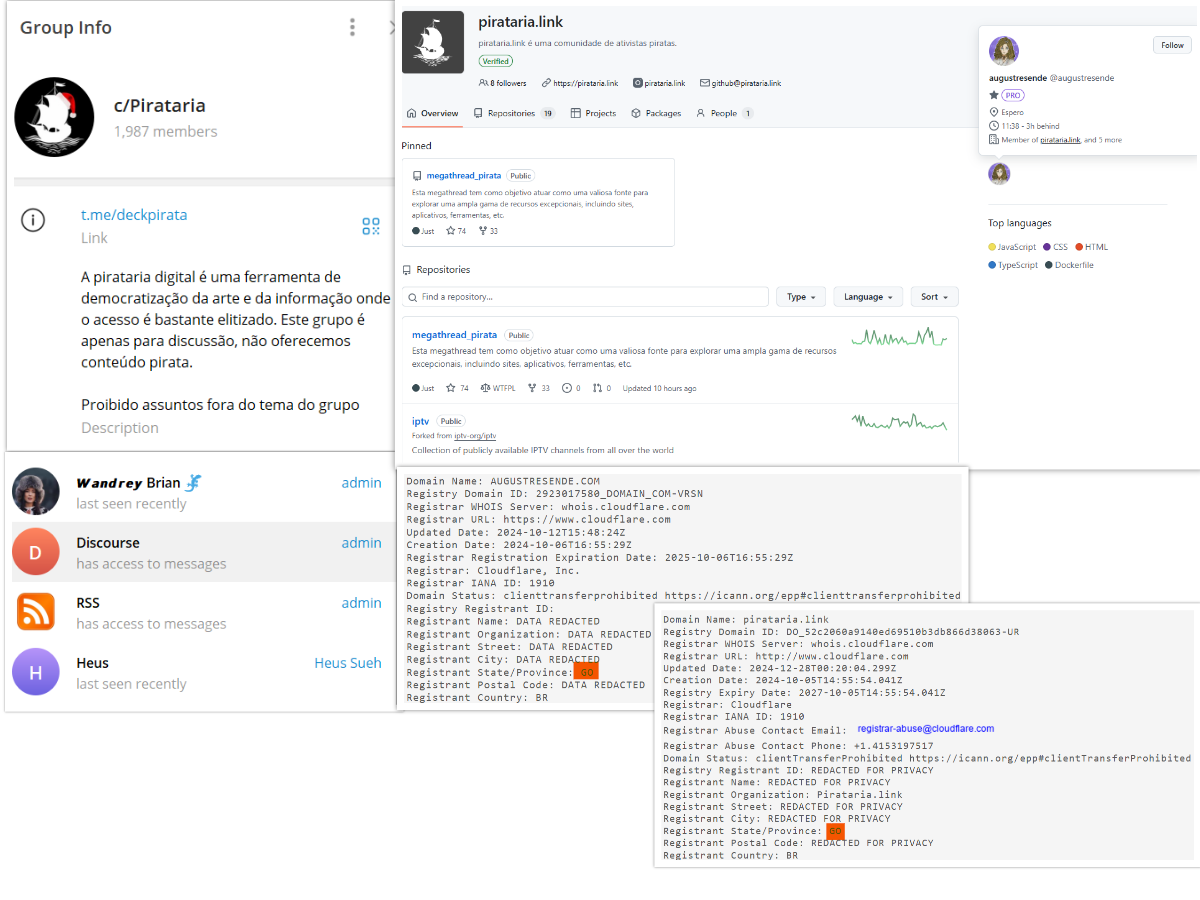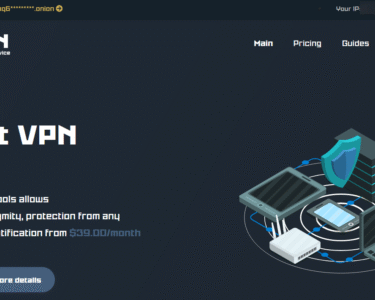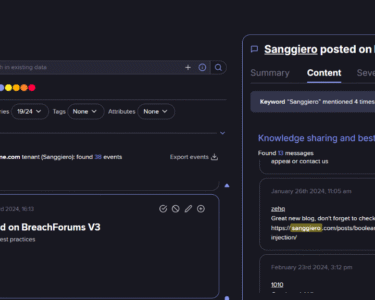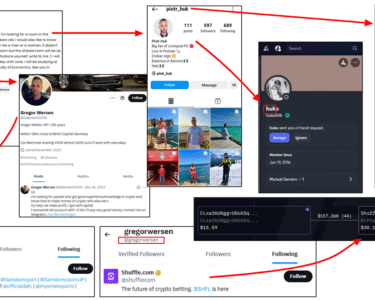The rise of digital piracy reflects the growing divide in economic realities and ideological debates surrounding access to information. As piracy evolves, its mechanisms become increasingly complex, exploiting vulnerabilities in legitimate systems to distribute intangible goods—assets of immense value to businesses and creators.
The Mechanics of Digital Piracy
Modern piracy thrives on the fluidity and replicability of intangible goods online. Pirates exploit system vulnerabilities to steal intellectual property, often using fraudulent registrations for services like VPNs, hosting platforms, email services, and cryptocurrency exchanges. Once stolen, these goods are distributed through websites and social media accounts, with the websites often protected by proxy infrastructures that obstruct copyright enforcement.
Some operations go further, leveraging adware and money-laundering schemes involving no-KYC payment providers and cryptocurrency to support their activities. Payment options range from Monero to gift cards, enabling anonymity and flexibility for piracy operators.
Case Study: “c/Pirataria” on Telegram
The Brazilian piracy community, c/Pirataria, operates on Telegram with over 2,500 members. Although the group claims to discuss piracy as a tool for “democratizing art and information”, its activities extend to sharing links to piracy platforms and resources.
Our investigation revealed direct links between the group’s members and broader piracy operations. Using methodologies like username enumeration, breach data analysis, and domain registration lookups, we identified key individuals and their associated platforms.
Key Findings:
- Telegram Group Admins:
- “𝙒𝙖𝙣𝙙𝙧𝙚𝙮 Brian” (@wandreybrian (previously @wandrey007); ID: 1310302765; @wandrey7 and @wandrey15 on GitHub; A.K.A. Wandrey Pedro Barbosa Xavier; originally from São Paulo; currently lives in Eunápolis, Bahia)
-
- “Heus” (@Heus_Sueh; ID: 921342599; A.K.A. Matheus Silva de Moura; São Paulo)
- Associated Websites:
- pirataria[.]link (created on 5th October 2024): Categorized piracy links for anime, books, games, music, and films. The domain was registered by an individual from Goiânia, Goiás. Augusto Resende (Goiânia, Goiás) connected with the GitHub account, piratarialink, has registered his domain augustresende[.]com on 6th October 2024.
- GitHub Connections:
- Contributors to a related GitHub account, piratarialink, include individuals with expertise in programming and web development, such as Augusto Resende (Goiânia, Goiás; @augustresende), Matheus Silva de Moura (@Heus-Sueh), Gabriel Osvair Costa Jardim (@CapivaraTupiniquim), Matheus Camargo de Paula (@Carryingwater), Wandrey Pedro Barbosa Xavier (@wandrey15).
- The group “r/Pirataria” on Reddit:
- r/Pirataria is the account of the Brazilian piracy community on Reddit. The subreddit was created on 5th November 2015, and it has 57K members. The moderators are: Matheus Silva de Moura (@Heus-Sueh), Christian Augusto Stadler Olibratoski (Palmeira, Paraná; @Mr_Apfelstrudel), Wandrey Pedro Barbosa Xavier (@wandrey15), Yuri Andrade Rosas (Itajaí, Santa Catarina; @YuriRosas).
Conclusion
From an OSINT perspective, the investigation into digital piracy networks like “c/Pirataria” demonstrates how publicly accessible information and analytical methodologies can play a pivotal role in disruption and enforcement efforts. OSINT tools, such as username enumeration, breach data analysis, domain registration lookups, and social media monitoring, provide valuable insights into the identities, infrastructure, and operations of piracy networks.
By mapping connections between key individuals, affiliated websites, and platforms, OSINT can support law enforcement and copyright holders.





